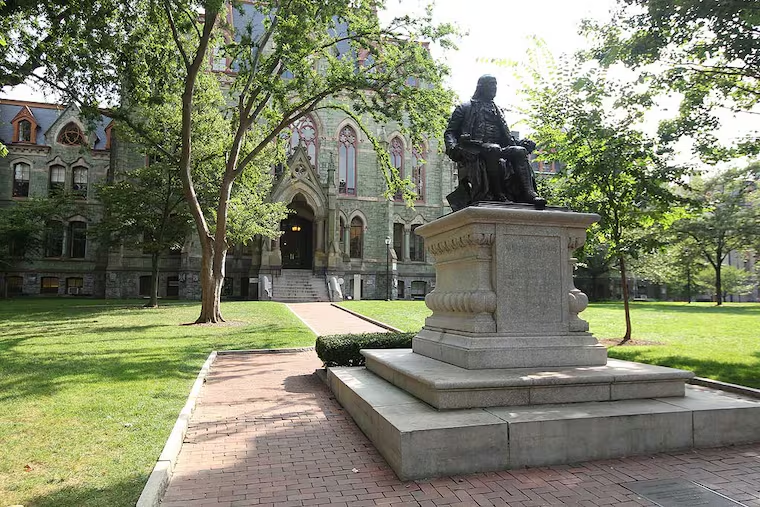Penn will offer public high school seniors in Philly a free four-week college and career prep program
At the University of Pennsylvania, administrators developed the free summer academy to help rising seniors in Philadelphia’s public high schools close any gap that may have been created by COVID-19.

This spring was tough on high school students, particularly those beginning their college searches. Campus tours went virtual. SAT testing was largely shut down.
And there was the transition to virtual learning, something that proved especially challenging for Philadelphia public school students, some of whom lacked internet access and computers.
At the University of Pennsylvania, administrators wanted to do something to help rising seniors in Philadelphia’s public high schools close any gap that may have been opened by the coronavirus pandemic.
Penn is offering a free, four-week virtual summer academy — including college and career preparation and academic enrichment — for up to 2,500 seniors in the city’s district and charter high schools. (On Wednesday, the university announced it would open the program to rising seniors in the city’s parochial schools, too.) For students unable to commit to the three hours a day of instruction, Penn also is offering a free “How to Apply to College” course that students can take on their own time and at their own pace during the summer. That is open to all 14,000 public school seniors in Philadelphia. (This program also is open to parochial school seniors.)
About 600 seniors have registered for the four-week program — which runs 10 a.m. to 2 p.m. with breaks, from July 6 to 31 — and 400 for the self-paced course. But many of those who have registered come from the city’s competitive magnet high schools. Penn officials said they want to broaden their reach and draw students from every high school in the city.
» READ MORE: ‘We wouldn’t shut down’: How the Class of 2020 is grappling with what was lost due to coronavirus
“Every single student in the city has talents that we know it will be our privilege to nurture,” said Valarie E. Swain-Cade McCoullum, Penn’s vice provost for student engagement.
Students don’t need to meet any test score or GPA requirements. McCoullum said the $1.15 million cost of the program is being covered by Penn.
McCoullum said there have not been any applicants from some neighborhood high schools, including Sayre and Strawberry Mansion. She has seen only two from West Philadelphia, she said.
The issue is especially important to McCoullum, a graduate of Philadelphia’s Girls High who taught English in the School District before moving into higher education.
» READ MORE: Why many Philly students aren’t logging on for school, and what that could mean for September
“These are my kids,” said McCoullum, who has been at Penn since 1977. “I am them.”
Penn provost Wendell Pritchett, with whom McCoullum worked to develop the academy, also has a strong connection to the School District. He is the son of two now-retired Philadelphia teachers and once served on the School Reform Commission, the district’s former governing body.
Eight of Penn’s 12 graduate and professional schools, including law, medicine, and dental, are developing career content, McCoullum said. Wharton, Penn’s business school, has created an applied economics and finance course. Penn faculty, staff, graduate and professional students will teach the courses.
Students who complete the academy will get a credit on their high school transcript and a Penn certificate. They will also leave with a draft personal statement they can use on their college applications and a professional resume, McCoullum said.
Both School District and university officials said such a large-scale and comprehensive effort done in partnership with a university — one of the most highly selective institutions in the nation — is unprecedented for Philadelphia.
“That’s definitely a new thing, and we’re excited to partner with them,” said Ali Robinson-Rogers, the district’s executive director for post-secondary readiness.
She said the program may not have drawn applicants from some schools because students have other opportunities. There are eight other summer programs in the district, and students can also participate in a summer youth employment program for which they earn a stipend. (Students in the four-week Penn program can apply for stipends through the employment program.) Internet access could be a barrier for some students, too, she said.
Robinson-Rogers said the district will continue to make students, parents, and guidance counselors aware of the opportunity. “We’re going to do everything we can to support this program,” she said.